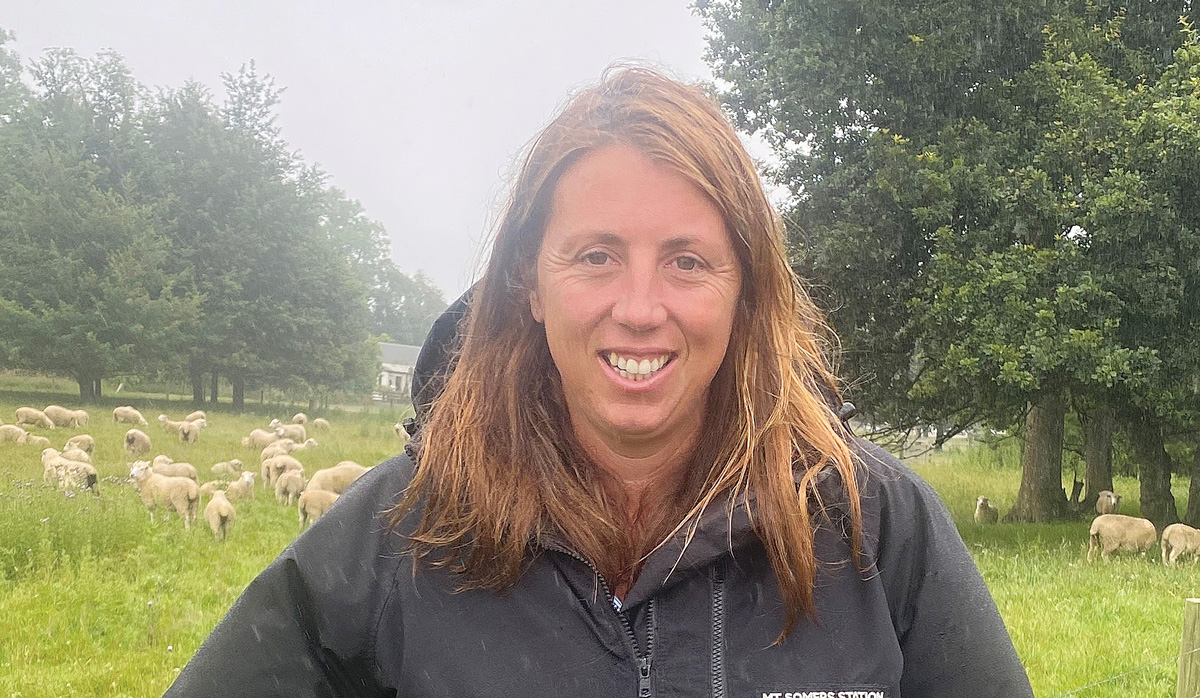Dairy power
OPINION: The good times felt across the dairy sector weren't lost at last week's Beef + Lamb NZ annual meeting.
 BLNZ chief executive Sam McIvor says the report shows it is time for the Government – whatever stripe – to pause and review the regulations currently being implemented on farm.
BLNZ chief executive Sam McIvor says the report shows it is time for the Government – whatever stripe – to pause and review the regulations currently being implemented on farm.
It's time to hit pause on the myriad of regulations being implemented on the sheep and beef farmers.
That's the call from Beef + Lamb NZ (BLNZ) following the release of a report which highlights the cumulative effects of the Government's environmental reform agenda on farms. Carried out by consultants BakerAg, BLNZ says the report shows that the raft of new and proposed environmental regulations has created significant administrative and financial burden for farmers.
"The report reinforces BLNZ's calls for the Government - no matter which party wins the General Election - to press pause on rules and review current or proposed rules to ensure they're fit for purpose without adding unnecessary costs," says BLNZ chief executive Sam McIvor.
He adds that there needs to be a detailed analysis of the cumulative impact of the Government's reform agenda.
BLNZ chair Kate Acland says while farmers acknowledge ongoing investment in environmental improvements is needed in many cases, this investment needs to be targeted at proven actions with measurable impacts.
"Instead, we have a range of one-size-fits-all rules that are simply imposing significant cost without clear benefits."
The report sets out the one-off opportunity and direct costs of central and local government policies on four case study farms. It points out that farmers are facing increasing costs for consents in order to undertake on-farm activities. Annual consenting costs across the four farms were as high as $30,000 - with one farm facing a one-off resource consent costs of $220,000. All four farms faced $15,000 in one-off direct costs for updating and auditing.
BakerAg says while the cost of excluding stock from waterways (primarily fencing costs) will affect fewer farms, these costs will likely be significant. One case study farm in the report was facing potential costs for stock exclusion of over $1.2 million.
However, the costs highlighted in the report only addres the policies already set out or where modelling has been released.
It says there will be significant additional costs to implement freshwater rules and biodiversity initiatives.
"The combination of these rules and the cost of implementation threatens farms' ongoing financial viability," McIvor claims.
Acland says a single rule on its own may seem small, but if you add them all up, it shows why farmers are so stressed at the moment and so concerned when any further rules are proposed.
She adds that over the past six years, more than 20 new regulations, laws and reforms have been introduced by central and local government.
 |
|---|
|
Beef + Lamb NZ board chair Kate Acland. |
"These will directly affect agriculture - primarily in the areas of climate change, freshwater and biodiversity," Acland explains.
"The Government needs to pause, review, reassess and simplify its approach to politics. Policies are al too often fragmented and impractical. A more holistic view is needed to develop sensible and pragmatic regulations that enable farmers' ongoing stewardship of the land."
Acland says the report shows the detrimental effects these policies are having one a range of farming communities, which will have lasting impacts on the wider economy and society.
The Meat Industry Association of New Zealand (MIA) today announced that Chief Executive Officer Sirma Karapeeva has resigned from the role.
The winners of the 2026 Hawke’s Bay/Wairarapa Dairy Industry Awards were announced at the annual awards dinner held at Copthorne Solway Park in Masterton on Thursday evening.
Environment Southland is welcoming this week’s decision by the Environmental Protection Authority (EPA) to approve the release of Blaptea elguetai, a leaf‑feeding beetle that will help control the highly invasive Chilean flame creeper.
This March, the potato industry is proudly celebrating International Women’s Day on 8 March alongside the International Year of the Woman Farmer, recognising the vital role women play across every part of the sector — from paddocks and packhouses to research, leadership, and innovation.
Fruit trader Seeka posted a record profit and returns to shareholders in 2025.
Recent weather events in the Bay of Plenty, Gisborne/Tairawhiti, and Canterbury have been declared a medium-scale adverse event.

OPINION: A mate of yours truly reckons rural Manawatu families are the latest to suffer under what he calls the…
OPINION: If old Winston Peters thinks building trade relations with new nations, such as India, isn't a necessary investment in…